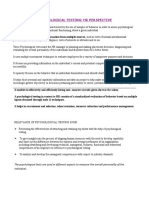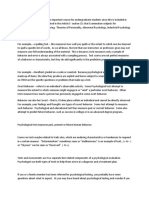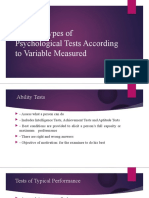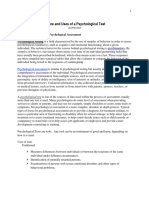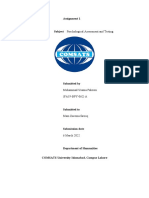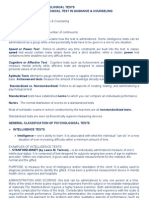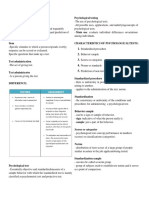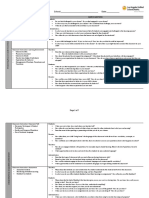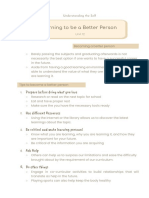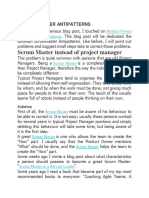0% found this document useful (0 votes)
61 views27 pagesTesting Introduction
Psychological testing involves a series of assessments conducted by psychologists to evaluate an individual's mental health, cognitive abilities, and personality traits, aiding in diagnosis and treatment planning. Various types of tests, including aptitude, cognitive, and personality assessments, are utilized across fields such as education, career counseling, and the legal system. The interpretation of these tests must consider the individual's context to avoid misdiagnosis.
Uploaded by
jj4641908Copyright
© © All Rights Reserved
We take content rights seriously. If you suspect this is your content, claim it here.
Available Formats
Download as PPTX, PDF, TXT or read online on Scribd
0% found this document useful (0 votes)
61 views27 pagesTesting Introduction
Psychological testing involves a series of assessments conducted by psychologists to evaluate an individual's mental health, cognitive abilities, and personality traits, aiding in diagnosis and treatment planning. Various types of tests, including aptitude, cognitive, and personality assessments, are utilized across fields such as education, career counseling, and the legal system. The interpretation of these tests must consider the individual's context to avoid misdiagnosis.
Uploaded by
jj4641908Copyright
© © All Rights Reserved
We take content rights seriously. If you suspect this is your content, claim it here.
Available Formats
Download as PPTX, PDF, TXT or read online on Scribd
/ 27





